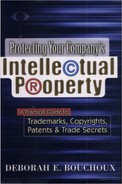The Federal Trade Commission
The Federal Trade Commission (FTC) enforces a variety of federal antitrust and consumer protection laws. The basic consumer protection statute enforced by the FTC is Section 5(a) of the FTC Act, which provides that unfair or deceptive acts or practices in or affecting commerce are unlawful. The FTC has the authority to investigate alleged unfair or deceptive practices and then to take action by issuing complaints, seeking injunctions, imposing fines, litigating, or ordering refunds. In many instances, parties charged with FTC violations enter into consent agreements or orders by which they agree to refrain from certain acts or practices.
In many instances, consumers file complaints with the FTC alleging unfair consumer practices and advertising. As in the laws relating to false advertising, the FTC has the authority to prevent even misleading ads and requires that claims such as ''Tests show that our product . . .'' be substantiated. Cases involving obviously exaggerated claims or puffery are not pursued. In recent years the FTC has shown great interest in claims and ads for food, cigarettes, pharmaceuticals, diet products, and other products that affect the health of consumers. The FTC has also directed efforts toward prohibiting unfair or deceptive advertising in infomercials, through telemarketing, and on the Internet. In mid-2000, the FTC shut down an Internet pyramid scheme that claimed that consumers could lease their ''dream vehicles'' for free while earning $180 to $80,000 per month by paying an annual fee and small monthly payments. The site was permanently shut down, and the principals were ordered to pay $2.9 million and barred permanently from any multilevel marketing business.
The FTC offers a wide array of information about permissible forms of advertising and an online complaint form on its Web site (www.ftc.gov). Alternatively, consumers can call toll free at (877) FTC-HELP to make a complaint. Finally, because Americans filed nearly 18,000 complaints with the FTC in 1999 alleging Internet fraud, the Department of Justice has launched a new online fraud investigative center to tackle problems ranging from online auctions to sales of products and services. The new site is at www.usdoj.gov/criminal/fraud/Internet.htm.
Many states have statutes similar to the FTC Act prohibiting false and deceptive practices. Such state acts often are called ''little FTC acts.''
